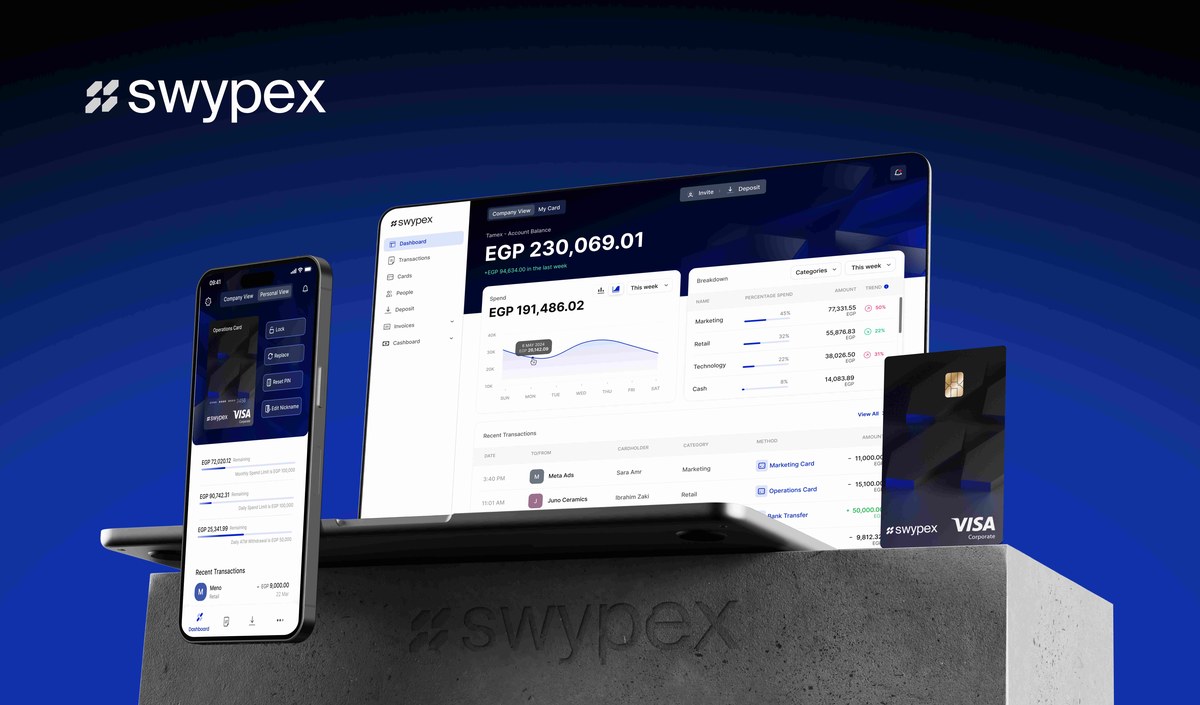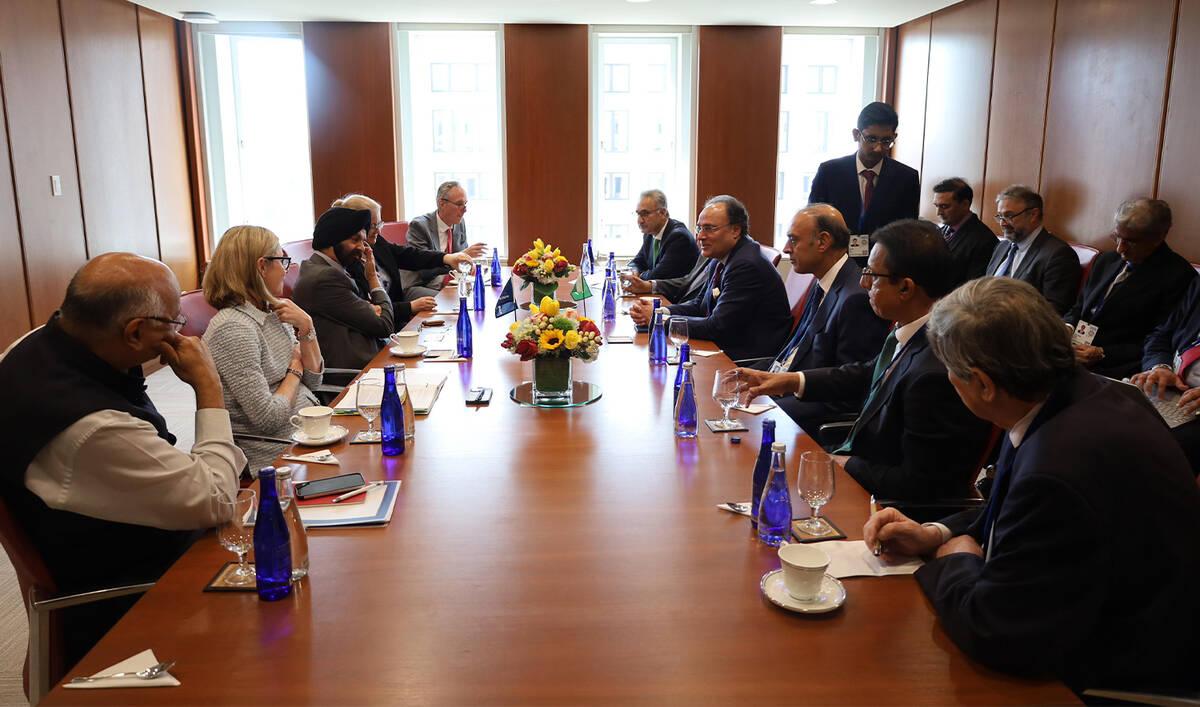CAIRO: Digital transformation is on the cusp as regional companies join hands to further boost this technological development across the Middle East and North Africa.
On top of this week’s partnerships, Saudi Arabia’s Alraedah Digital Solutions, the innovation arm of Alraedah Digital Group, inked a deal with regional fintech ABHI to boost financial inclusion in the Kingdom.
Under the terms of the agreement, Alraedah Digital Solutions will harness ABHI’s advanced technological capabilities to introduce a range of innovative financial services tailored to the Saudi market.
The collaboration will focus on leveraging Alraedah’s deep knowledge of local market dynamics to launch new financing products collaboratively.
Additionally, Alraedah has committed to a substantial financial investment, pledging access to $200 million over three years to support the development and localization of ABHI’s products for the Kingdom.
“We are excited to join forces with ABHI to revolutionize the financial landscape in Saudi Arabia. This partnership underscores our commitment to fostering innovation and driving economic empowerment through strategic collaborations. Together, we aim to redefine access to financial services and empower individuals and businesses across the region,” Paul Melotto, CEO at Alraedah Digital Solutions, said.

Paul Melotto, CEO at Alraedah Digital Solutions and Omair Ansari, CEO and co-founder of ABH. Supplied
Founded in 2021, ABHI specializes in earned wage access, invoice factoring, small and medium sized enterprise working capital, revenue-based financing, and payroll solutions.
To date, ABHI claims to have supported over 1,000 companies, enhancing financial stability for approximately 750,000 employees and processing over $300 million in loans across different regions.
The company is backed by notable investors including Y Combinator, VEF, SpeedInvest, Venture Souq, Global Ventures, and Zayn Capital.
Abu Dhabi’s Comera Financial Holding joins hand with Egypt’s Beltone Holding
Comera Financial Holding, an Abu Dhabi-based group with interests in technology and fintech, has joined forces with Beltone Holding, a prominent financial services provider in Egypt, to enhance digital transformation and customer experience in the North African country.
The strategic partnership focuses on knowledge transfer and the introduction of new digital solutions across the region.
Together, Comera and Beltone aim to develop and deploy advanced products that will elevate customer experiences in various financial sectors, including payments, consumer finance, SME finance, and supply chain financing.
“This collaboration represents a pivotal step forward in our commitment to enhancing digital access and improving financial services for our customers,” Dalia Khorshid, Group CEO of Beltone Holding, said.
The collaboration will leverage both companies’ expertise to introduce cutting-edge technological solutions not only in Egypt but also in other Middle East and North Africa countries.
MoneyHash partners with Visa
US-based, MENA-focused fintech MoneyHash has announced a new collaboration with digital payments firm Visa.
This partnership aims to deliver secure and enhanced digital payments experiences across the region.
By collaborating with Visa, MoneyHash will gain access to an extensive array of Visa’s digital payment solutions, enhancing its service offerings with advanced technologies like network tokenization.
Additionally, this partnership allows MoneyHash to tap into Visa’s vast global reach, capabilities, and renowned security infrastructure.
These elements are crucial to Visa’s mission of connecting the world through an innovative, reliable, and secure payment network, now extending further across the MENA region.
This strategic alliance is set to significantly boost MoneyHash’s capacity to serve its customers with payment solutions.
Dubizzle acquires Drive Arabia
Dubizzle Group, a leading online classifieds platform in the Middle East, has further cemented its position in the automotive sector across the MENA region with the acquisition of Drive Arabia.
Known for its strong brand presence over the past two decades, especially in the UAE and Saudi Arabia, Drive Arabia brings valuable expertise and a loyal customer base to Dubizzle Group.
This acquisition enables Dubizzle Group to enhance its automotive advertising services, introduce innovative new products, and expand its market reach.
The integration of Drive Arabia is expected to significantly bolster Dubizzle Group’s capabilities in meeting the evolving needs of automotive customers across the region.
Egypt’s Swypex secures $4m in seed round

Supplied.
Swypex has announced its emergence onto the financial technology scene with a $4 million seed investment round led by US venture capital fund, Accel.
This investment marks Accel’s first foray into the fintech sector in the region and includes contributions from Foundation Ventures, the Raba Partnership, and several leading industry angel investors.
Licensed by the Central Bank of Egypt, Swypex aims to become the first comprehensive platform aimed at eliminating financial inefficiencies and maximizing business potential in the country.
The platform integrates payments, invoice management, and smart corporate cards into a single system designed to streamline financial operations.
Swypex’s products are tailored to simplify financial management for businesses, allowing them to automate workflows and facilitate easy payments.
The corporate cards offered by Swypex are specifically designed for Egyptian businesses to help reduce costs, enhance operational efficiency, and support scalable growth.
Monsha’at graduates 25 startups from Qassim University
Saudi Arabia’s Small and Medium Enterprises General Authority, also known as Monsha’at, has announced the successful graduation of 25 startups from Qassim University’s business incubator, as part of the University Startups Initiative Program.
The business incubator is designed to facilitate the transition of creative ideas and university graduation projects into market-ready startups capable of securing investments.
During their time in the incubator, the startups managed to increase their client base by 35 percent and successfully secured two investment rounds totaling around SR500,000 ($133,317).
Since its inception in 2023, the University Startups Initiative Program has graduated 75 startups in collaboration with three government universities located in Riyadh, Al-Ahsa, and Qassim.
April startup funding sees sharp decline
Startup funding in the MENA region experienced a sharp decline in April, with only 19 startups raising $55 million.
This represents a 78 percent drop month-on-month from $254 million raised in March, although it marks an 87 percent increase year-on-year, according to Wamda’s Monthly report.
The largest funding amount in April was awarded to Fortis, a UAE-based fintech startup, which secured $20 million in a series A round.
This was followed by WEE, which raised $10 million in a pre-series A round, and Tunisia’s Qodek, which garnered $8 million in its series B round.
Geographically, UAE-based startups led the funding charts with $32 million distributed across six deals, while Egyptian startups received $8.7 million over five deals.
In contrast, Saudi startups saw a noticeable decrease in investment, attracting only $4.8 million across three deals.
Sector-wise, fintech remained the most funded, with four companies raising $25.7 million, $20 million of which was allocated to Fortis alone.
E-commerce startups received $10.5 million across two funding rounds, and an AI firm, Qodek, raised $8 million. Additionally, three Software-as-a-Service providers collectively raised $3.5 million.
In terms of gender representation in funding, disparities remain significant.
Only one female-founded firm managed to secure $100,000, in stark contrast to the $43 million received by male-founded companies, highlighting ongoing challenges in achieving gender parity in the startup ecosystem.



















